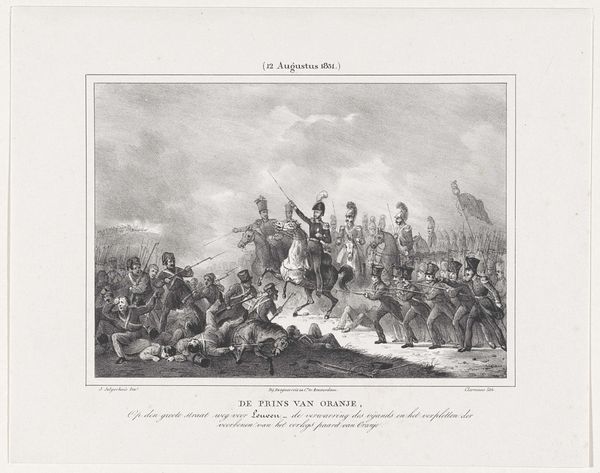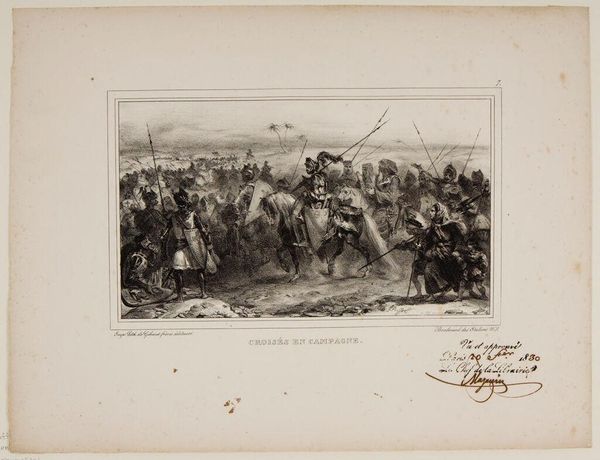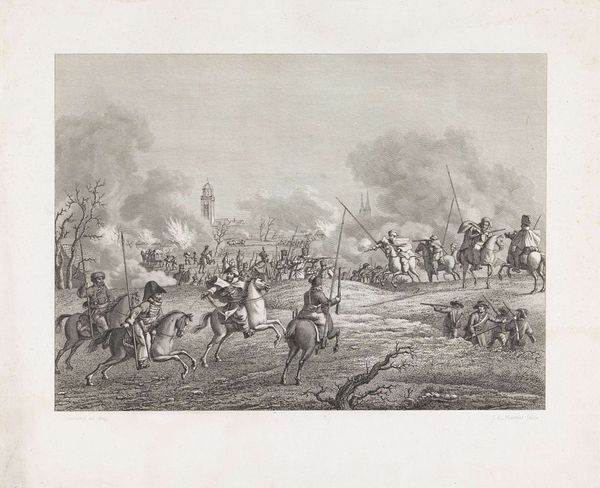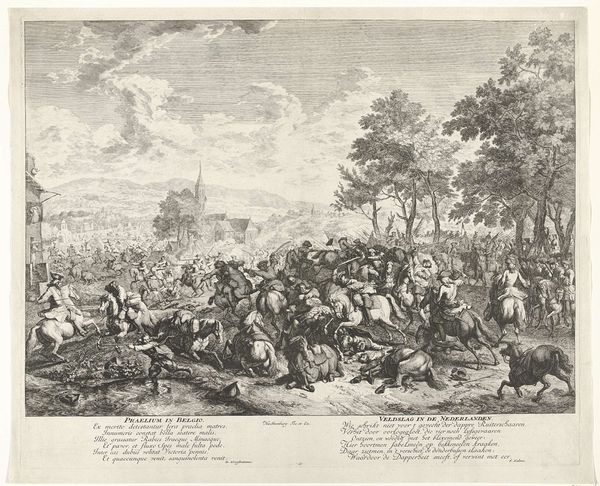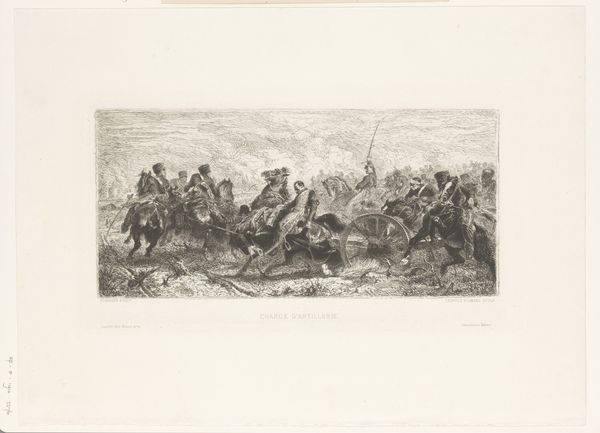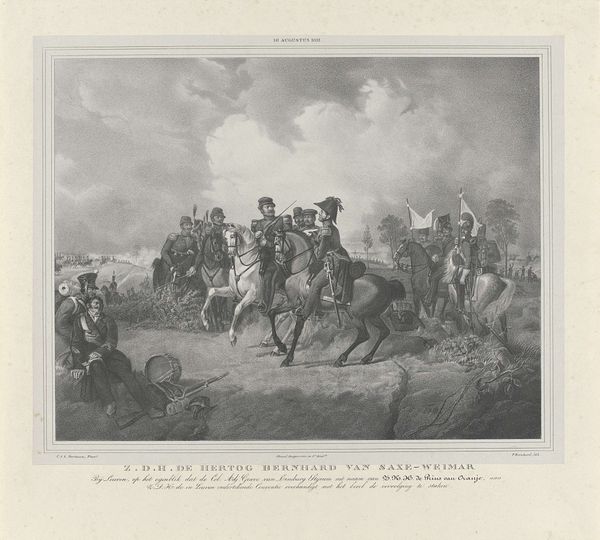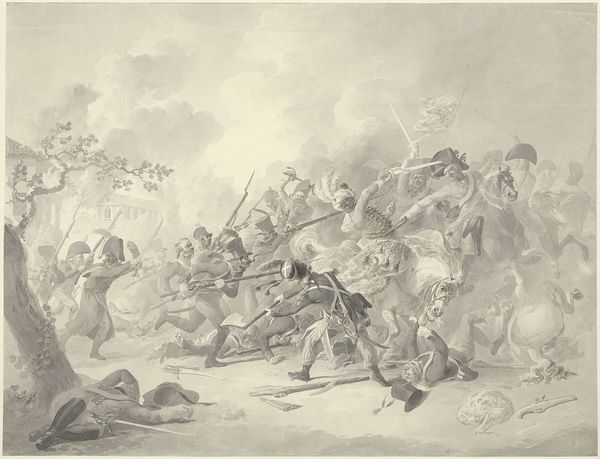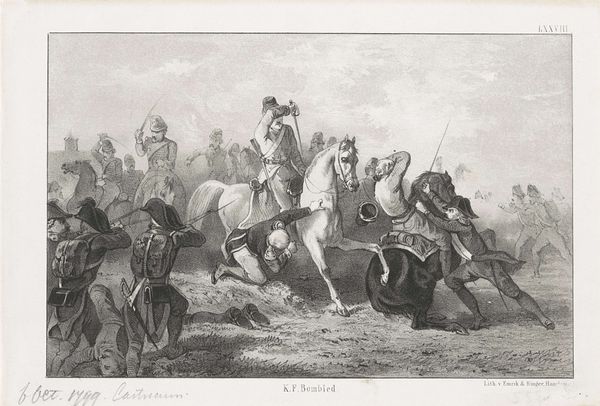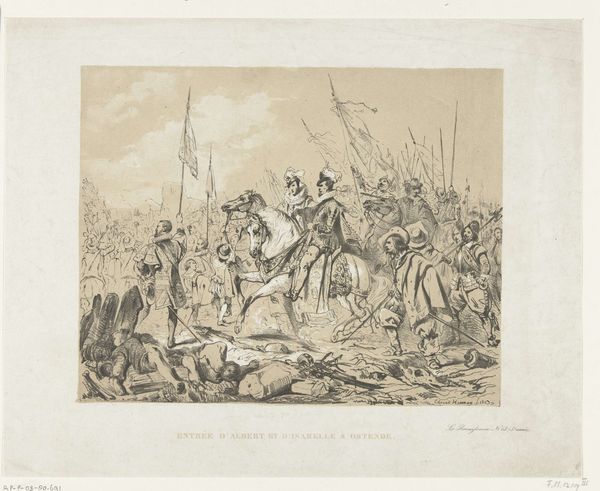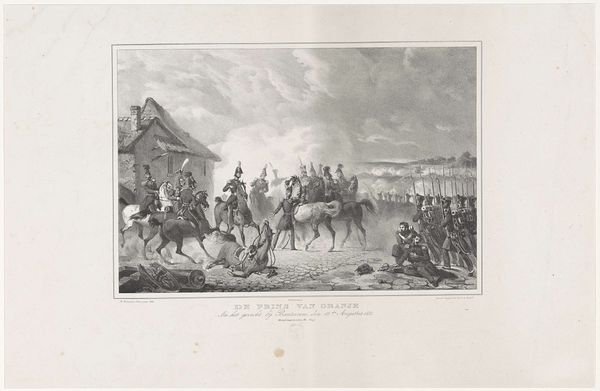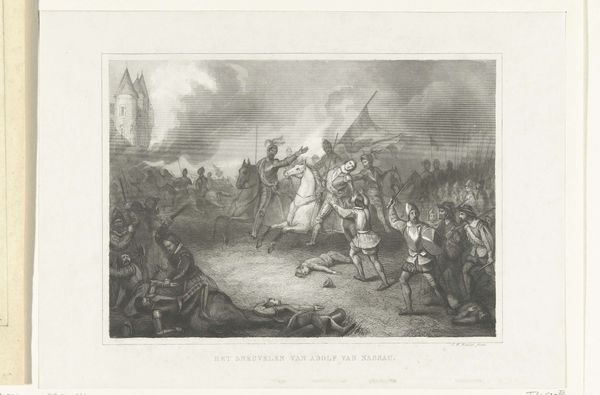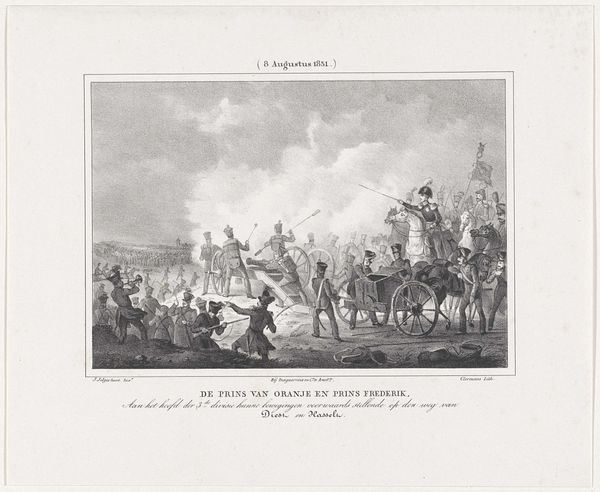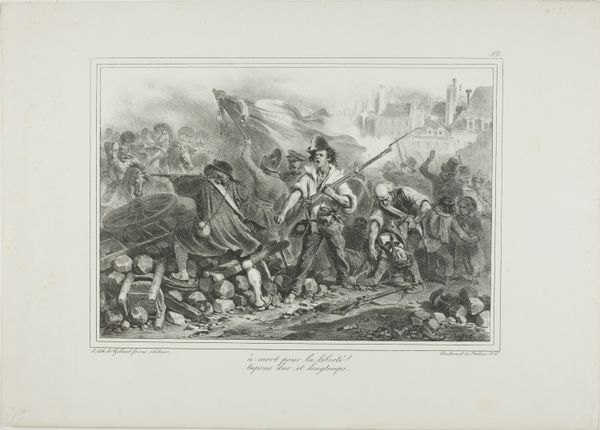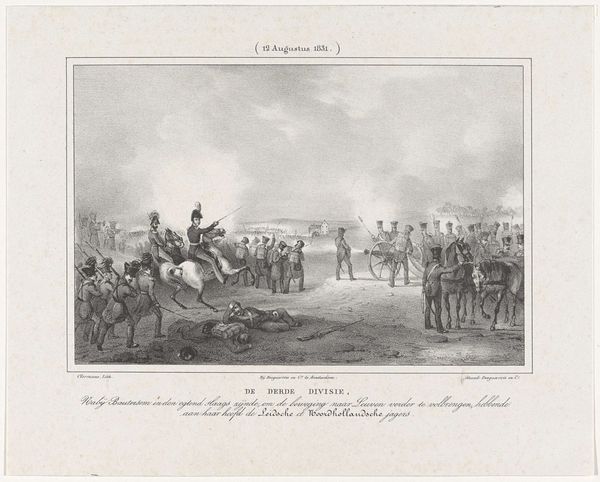
drawing, print, etching
#
pencil drawn
#
drawing
# print
#
etching
#
pencil sketch
#
landscape
#
etching
#
figuration
#
pencil drawing
#
romanticism
#
genre-painting
#
history-painting
Dimensions: height 470 mm, width 578 mm
Copyright: Rijks Museum: Open Domain
Editor: This is "Gevecht bij Boutersem, 1831", possibly from between 1831 and 1839, by Johann Peter Berghaus, held at the Rijksmuseum. It's a drawing, or rather an etching – so technically a print. It feels quite dynamic; there's a lot of implied movement. How do you interpret this work? Curator: Let's consider this etching not just as a depiction of battle, but as a material product embedded in a specific historical context. What materials were available to Berghaus, and how did the process of etching itself shape the image? The availability of affordable printmaking techniques allowed for wider dissemination of these scenes, no? Editor: That's a great point, the printing makes it almost like propaganda... or news. Does the medium therefore impact our interpretation of the historical event? Curator: Precisely! Think about the labor involved – the engraver's skill, the paper production, and the distribution networks. How does the mass production affect our perception of war compared to a unique, hand-painted battle scene for instance commissioned by an aristocratic family for its private viewing? Editor: It definitely democratizes it somewhat, making it more accessible. This wasn't just about depicting a glorious battle; it's about conveying information and perhaps even shaping public opinion. Curator: And considering that prints were often hand-colored, how does that further complicate the relationship between the original artistic intent and the consumer’s experience of the artwork? What social class do you imagine this was targeted at? Editor: Interesting! I hadn't thought about it like that. I guess it reveals the broader social and economic conditions influencing both the creation and consumption of art. I appreciate that I hadn’t even thought of that aspect. Curator: Exactly. And hopefully that changes your viewing habits in the future.
Comments
No comments
Be the first to comment and join the conversation on the ultimate creative platform.
